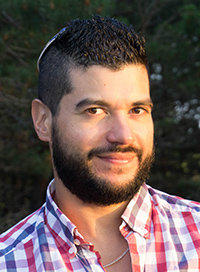Volume 9, Issue 1
fall 2018 |
Compiled by Moe Gardner
& Ashley Lee-Desravines
Layout, Nick Appleby |
|
“Race, Religion, and Sex in the Inquisition”
by Madeline Sachs
Professor De Souza’s, “Race, Religion, and Sex in the Inquisition,” is not simply a course about Medieval Spain. Its content stretches across Europe and into the colonial Americas, from the 15th century to the present. In addition to in-depth historical background built on firsthand trial transcripts, the course covers broad questions that apply to multiple disciplines. For example, given what we know about religious and cultural attitudes at the time, was the Inquisition just? Are religion and sexuality essential to human identity, or social constructs? Should countries with repressive histories offer reparations to the descendants of persecuted groups?
As a senior Ethnicity, Race, and Migration major with a concentration in gender and bodies, my courses have rarely reached back more than a few centuries, let alone to medieval Europe. However, Professor De Souza’s course has proved crucial to my understanding of contemporary Latin America, religious identity, and the continuing existence of “crypto-Jews” across the world. Certainly, the ramifications of the Inquisition still impact communities today, and many of our modern ideas about race, discrimination, and displacement originate in this time period. As I have learned, it is impossible to talk about race and colonialism in the Americas without discussing the Inquisition. In addition, the Inquisition’s ideas about sodomy persist in current debates on gay rights and transsexuality. Professor De Souza’s course is a must-take for anyone interested in the ways discriminatory power structures have had an intersectional effect on marginalized subjects throughout history. |
|
Find us on
 |
WGSS
LGBTS |
|
|
|
|
|
|


